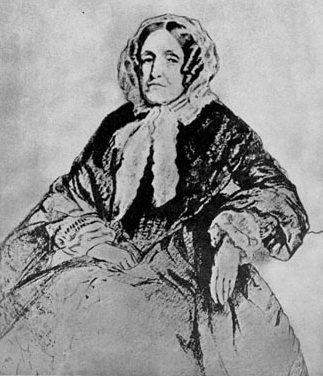| Profile | Major Works | Resources |
Jane Haldimand Marcet, 1769-1858

If political economy was the "rage" in social circles in the early 19th Century, it was in good part due to the wildly popular 1816 work of Jane Haldimond Marcet. Educated by tutors in her father's home, Jane Haldimand Marcet's primary interest was botany and chemistry, an interest encouraged by her husband (a doctor and chemistry professor in Geneva, Switzerland). In 1806, Marcet published her first book, a popular exposition of the principles of chemistry which influenced the great chemist Michael Faraday.
The success of her first book led her to try the same approach to political economy in 1816 with her Conversations on Political Economy. Marcet presented Classical economic theory in terms of conversation between a pupil, Caroline, and her tutor, Mrs. B. Drawing heavily on Adam Smith, Jean-Baptiste Say, Robert Malthus and David Ricardo (whom she knew personally), Marcet's Conversations were a non-critical exposition of the principles of Classical political economy, intended largely for the education of the young and upper class lay people. Its popularity inspired other writers, notably Harriet Martineau, to try their hand at popular expositions of economics.
Marcet's 1833 John Hopkins book was tailored to be read by the working classes. She goes through the same topics as before, this time using stories involving John Hopkins, a poor laborer. An extraordinarily patronizing book, she takes Hopkins' complaints about the hardships of his positions and attempts to justify them in terms of Classical economics. In retrospect, it is a shameless defense of the status quo of the British class system. She repeats the exercise in her 1851 Rich and Poor, this time using the medium of Mr. B, a school master in a country village and his six boy students. It is notable that here, Marcet switches from the "iron law of wages" to the wages fund doctrine.
|
Major works of Jane Haldimand Marcet
|
|
HET
|
|
Resources on Jane Marcet
|
All rights reserved, Gonšalo L. Fonseca
